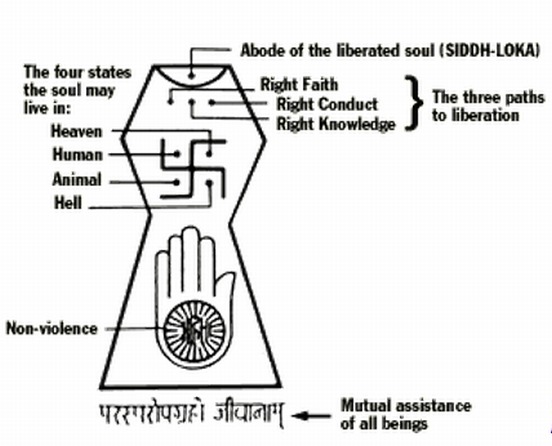Religions Around the World
Conditions d’achèvement
In this book (Lecture), we will focus on Polytheism and Atheism.
5. Transcendental Religions: Buddhism
5.1. Jainism
Jainism An ancient philosophy and ethical teaching that originated in India. The main principle is ahimsa – the avoidance, where possible, of physical or mental harm to any living being. Jainism is a religion without a belief in a creator god. The founder of the Jain community was Vardhamana, the last Jina in a series of 24 who lived in East India. He attained enlightenment after 13 years of deprivation and committed the act of sallekhana, fasting to death, in 420 BCE. Jainism has many similarities to Hinduism and Buddhism which developed in the same part of the world. They believe in karma and reincarnation as do Hindus but they believe that enlightenment and liberation from this cycle can only be achieved through asceticism. Jains follow fruititarianism. This is the practice of only eating that which will not kill the plant or animal from which it is taken. They also practice ahimsa, non-violence, because any act of violence against a living thing creates negative karma which will adversely affect one's next life.
Sacred writings: The Jaina Sutras


